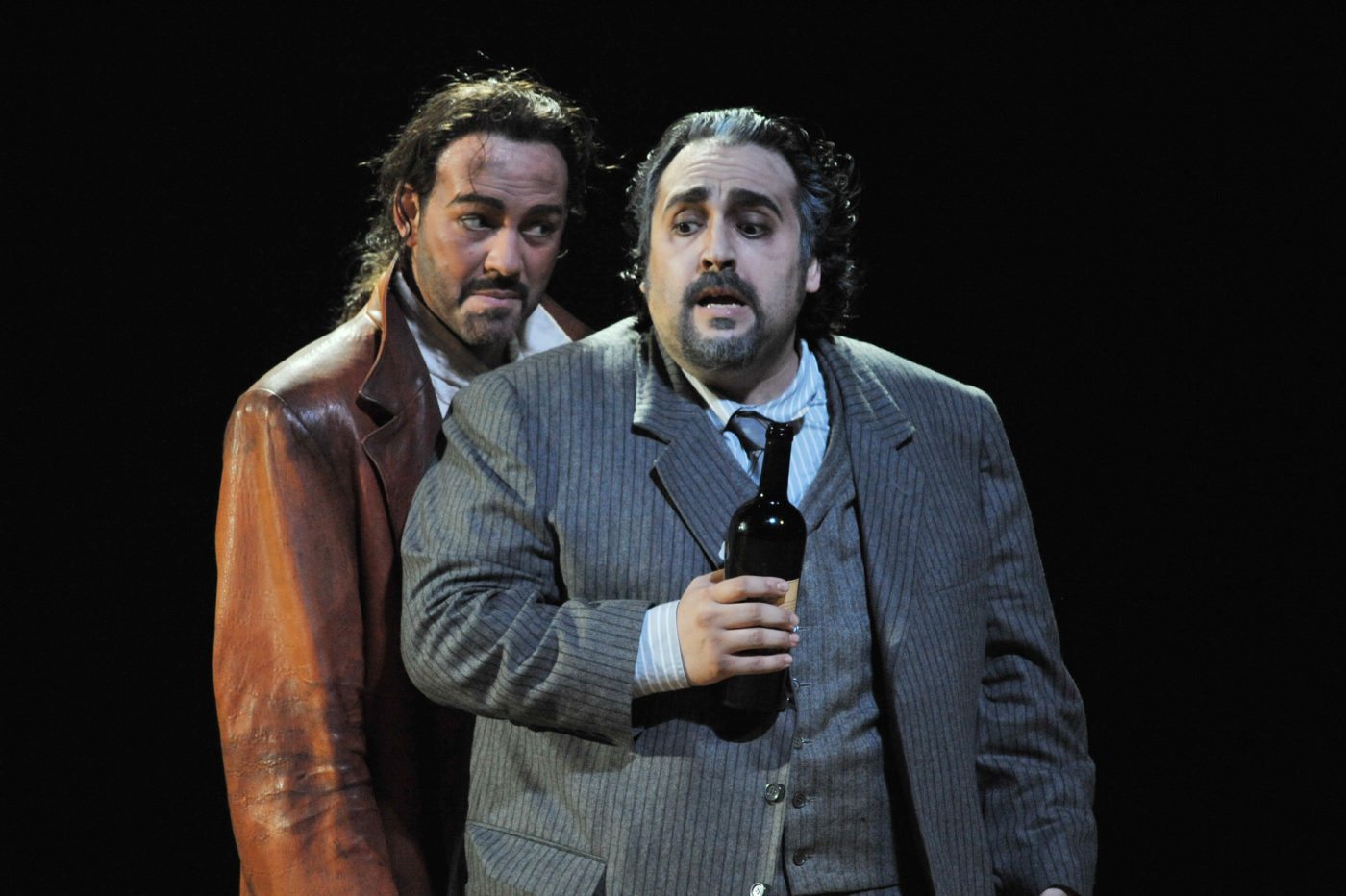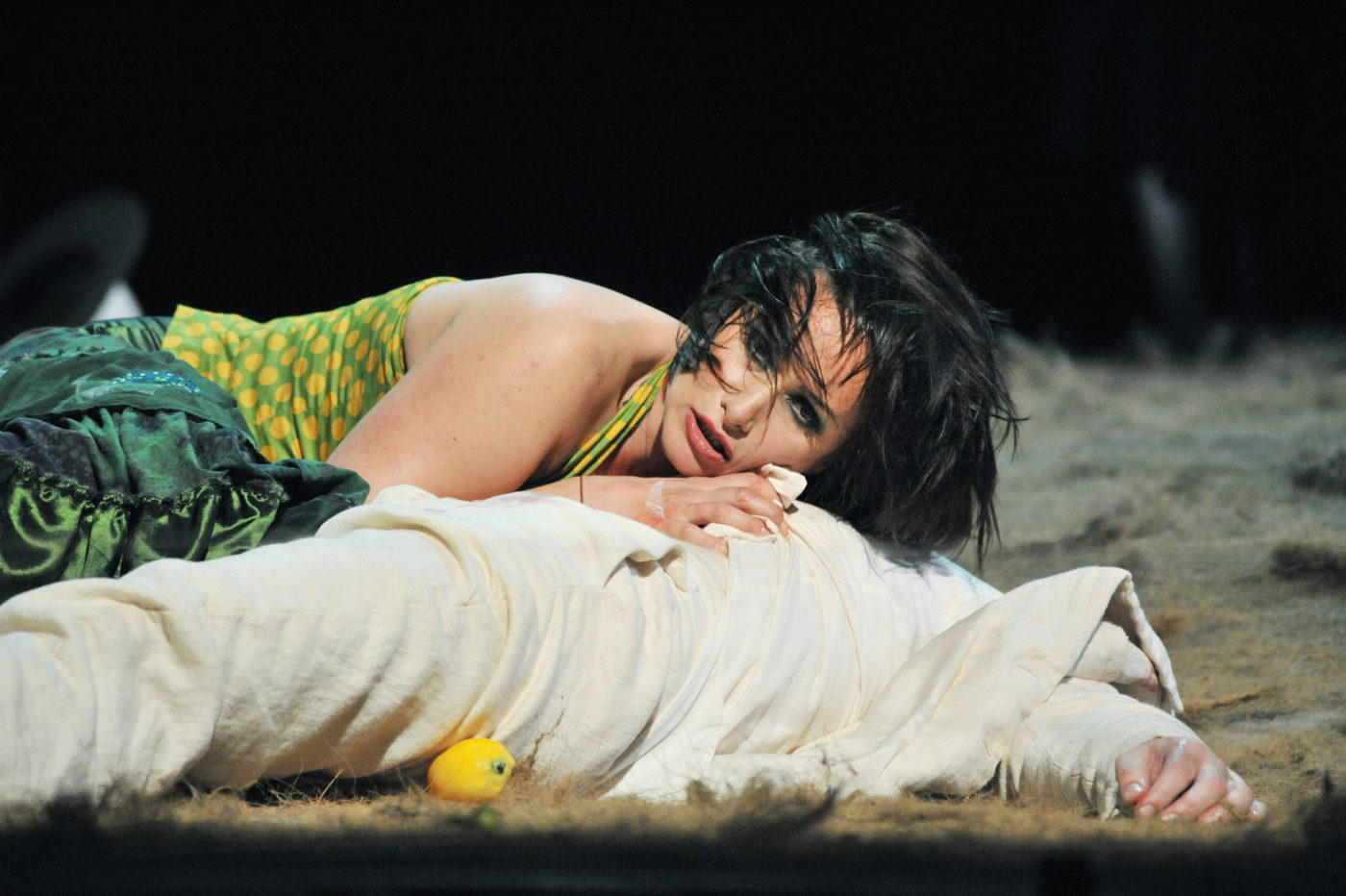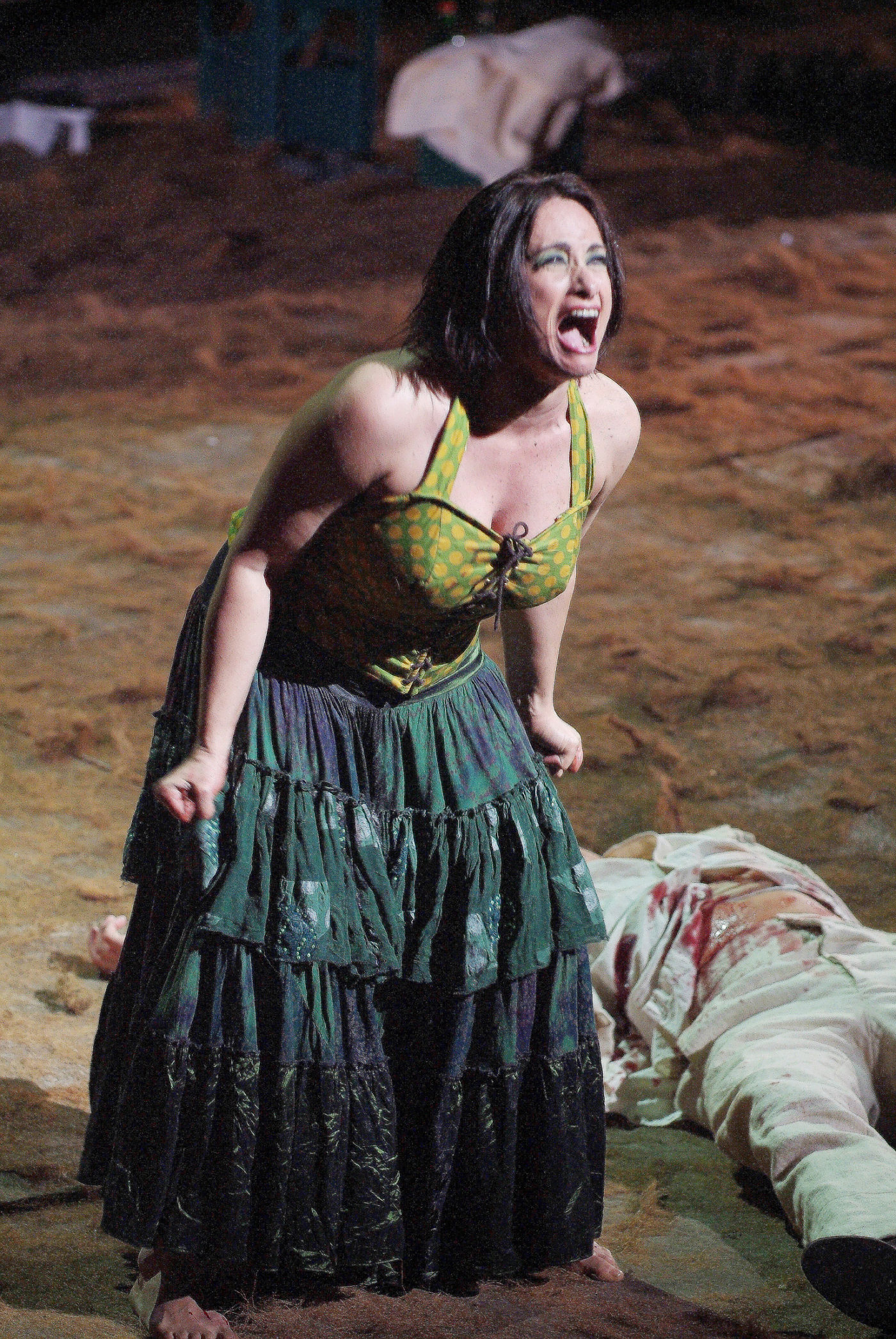Editorial Mondigromax
La cabeza del Bautista
La cabeza del Bautista
(The head of the Baptist)
Enric Palomar

La cabeza del Bautista
Opera in one act and eight scenes
Composition: Enric Palomar
Libretto: based on the homonymous work by Ramón Mª del Valle-Inclán, adapted by Carlos Wagner
Year of composition: 2008
Duration: 90 min.
Language: Spanish
Commission: Gran Teatre del Liceu Foundation, Barcelona
Dedicated to Dietrich Grosse
World premiere: April 20, 2009 at the Gran Teatre del Liceu
9 performances in total, till May 2, 2009
Libretto adapted by Carlos Wagner from the homonymous text of the “melodrama para marionetas” Retablo de la avaricia, la lujuria y la muerte (Tableau of greed, lust and death) by Ramón María del Valle-Inclán. Several popular songs that are merely outlined in the theatrical version are sung in the opera by the group of roving singers mentioned by the playwright, a mixed chorus of Bar patrons, and a Blind Man and his Boy, who are borrowed from El embrujado, another play from Retablo de la avaricia, la lujuria y la muerte. The introduction is based on Valle-Inclán’s poem Rosa de llamas.
Hand program Gran Teatre del Liceu
Score La cabeza del Bautista 366 pags. Editorial Mondigromax
La cabeza del Bautista (The head of the Baptist)
World premiere: April 20, 2009 at the Gran Teatre del Liceu. Till May 2, nine performances in total.
Creatives
Conductor: Josep Caballé-Domènech
Stage Direction: Carlos Wagner
Set Design: Alfons Flores
Costumes: Mercè Paloma
Lighting: Xavi Clot
Movement: Marian Escoda
Set construction: Delfini Group, SL
Stage management assistant: Albert Estany
Costume making: Sastrería Cornejo
Student in practice from Barcelona’s Theater Institute (set design): Jorge Salcedo
Student in practice from Barcelona’s Theater Institute (costume design): Elisabet Siles
Production: Gran Teatre del Liceu
Symphony Orchestra and Choir of the Gran Teatre del Liceu
Conductor of the choir: José Luis Basso
Cast
Don Igi, el Indiano Gachupín (Higinio Pérez): José Manuel Zapata / Francisco Vas (23, 29)
La Pepona: Ángeles Blancas / Rosa Mateu (23, 29)
El Jándalo (Alberto Saco): Alejandro Marco-Buhrmester / Michael Kraus (23, 29)
Valerio, el Pajarito: Antonio Lozano
The barber: Roberto Accurso
The tailor: Enric Martínez-Castignani
The dwarf of Salnés (Merengue): Javier Abreu
Rondalla of young men: José Luis Casanova / Airam Hernández (23, 29), Carles Prat / Emili Roses (23, 29), Gabriel Diap / Xavier Comorera (23, 29), Dimitar Darlev / Miguel Ángel Currás (23, 29)
The blind man: Michael Kraus / Xavier Mendoza (23, 29)
The blind man’s young boy assistant: Fabiola Masino / Eliana Bayón (23, 29)
Press quotes
But the Liceu is not just one of the (only) three major opera houses in Spain, it is one of the most important theaters in the world. (…) A tone of voice that mixes bright night with absoluteness, that strikes strong emotions and yet never renounces elegance, comprehensibility. Palomar is wonderfully able to repel menace, lust, eroticism and impetuosity in the orchestra.” April 23, 2009 Süddeutsche Zeitung. Reinhard Brembeck.
:::
Enric Palomar has well learned the lesson of the best Falla and Gerhard, and the Hispanic perfume, skilfully performed without corsets, the score shines in the first part of the work to give way to a more ominous palette as lust and dead they learn of the plot. Of course, as in so many operas today, the orchestral writing is much more successful than the vocal. April 22, 2009. AVUI. Xavier Cester.
:::
The first major opera by the award-winning Catalan composer was by no means academic, atonal or difficult to access. On the contrary: the approximately one-and-a-half-hour work is captivating and exciting, both musically and in terms of content. It’s catchy, because Palomar intersperses the composition with elements of traditional Spanish music. Conducting the orchestra of the Gran Teatre del Liceu, Josep Caballé Domènech was able to shape the rhythmic character of the work just as convincingly as its lyrically romantic and tragic traits. June 2009. Das Opernglas. Beate Frakele



